Introduction
Finding the right support system is crucial for families navigating the challenges of autism. That's where community-based autism support groups step in, offering a beacon of hope and connection. These groups, led by compassionate individuals and families affected by autism, provide a platform for sharing resources and fostering connections.
From transforming an allotment into an autism 'hub' to producing films about human rights, these groups go beyond support, offering educational workshops, advocacy, and networking opportunities. With the demand for autism assessments and support on the rise, the role of these groups in providing early identification and assistance is more important than ever. Whether it's exploring new treatments or seeking communal spaces to share experiences, these support groups have become indispensable in the journey to acceptance and integration for individuals with autism and their families.
Joining a support group can have a profound impact on well-being, providing emotional support, coping strategies, and a sense of belonging. By actively engaging with these groups and accessing online resources, parents and caregivers can navigate the autism journey with empowerment and ensure that their children thrive with the support they need.
What Are Autism Support Groups?
Finding the right support system is essential for families dealing with autism, and community-based autism support groups have emerged as a beacon of hope for many. These groups, run by compassionate individuals and families themselves affected by autism, provide an invaluable platform for connection and resource-sharing. Consider the story of the Autism Allotment founders Paul and Michael Atwal-Brice, who have remarkably transformed an allotment into an autism 'hub'.
With a generous contribution of over £20,000 in work and materials plus the help of dedicated volunteers, including horticulture students, this allotment now serves not just as a garden but a nurturing haven for individuals with autism to engage and thrive.
Innovative initiatives don't stop there. The Autism Activists, a group formed in 2018, have combined creativity with advocacy to produce a compelling film about human rights, focusing on values like dignity, equality, and respect. These young activists, through their involvement in visual storytelling, are not just learning about themselves but also amplifying the voice and rights of the autistic community.
The groups recognized here have provided examples of services beyond just support—they offer educational workshops, advocacy, and networking opportunities that are in high demand. According to a report from 2023, there has been a staggering 306% increase in the number of children waiting for an autism assessment since COVID-19, showcasing the urgent need for additional support venues. Furthermore, with a 27% rise in autism referrals in one year alone, the role of support groups in providing early identification and timely assistance is clearer than ever.
Whether it's assessing new treatments and therapies or simply finding a communal space to share experiences, these groups have become indispensable. It's vital to remain informed and exercise due diligence, especially when exploring online communities and treatments for autism. Misinformation and alluring but potentially harmful 'alternative treatments' can be navigated safely with the guidance of experts and a constant quest for knowledge, as many caregivers know all too well.
Autism support groups, through their local initiatives and global information exchange, play a pivotal role in building both awareness and accessible spaces for individuals with autism and their families. They stand out as pillars in the journey to acceptance and integration, creating environments where being understood is not the exception but the norm and where every individual has the opportunity for personal growth and community integration.
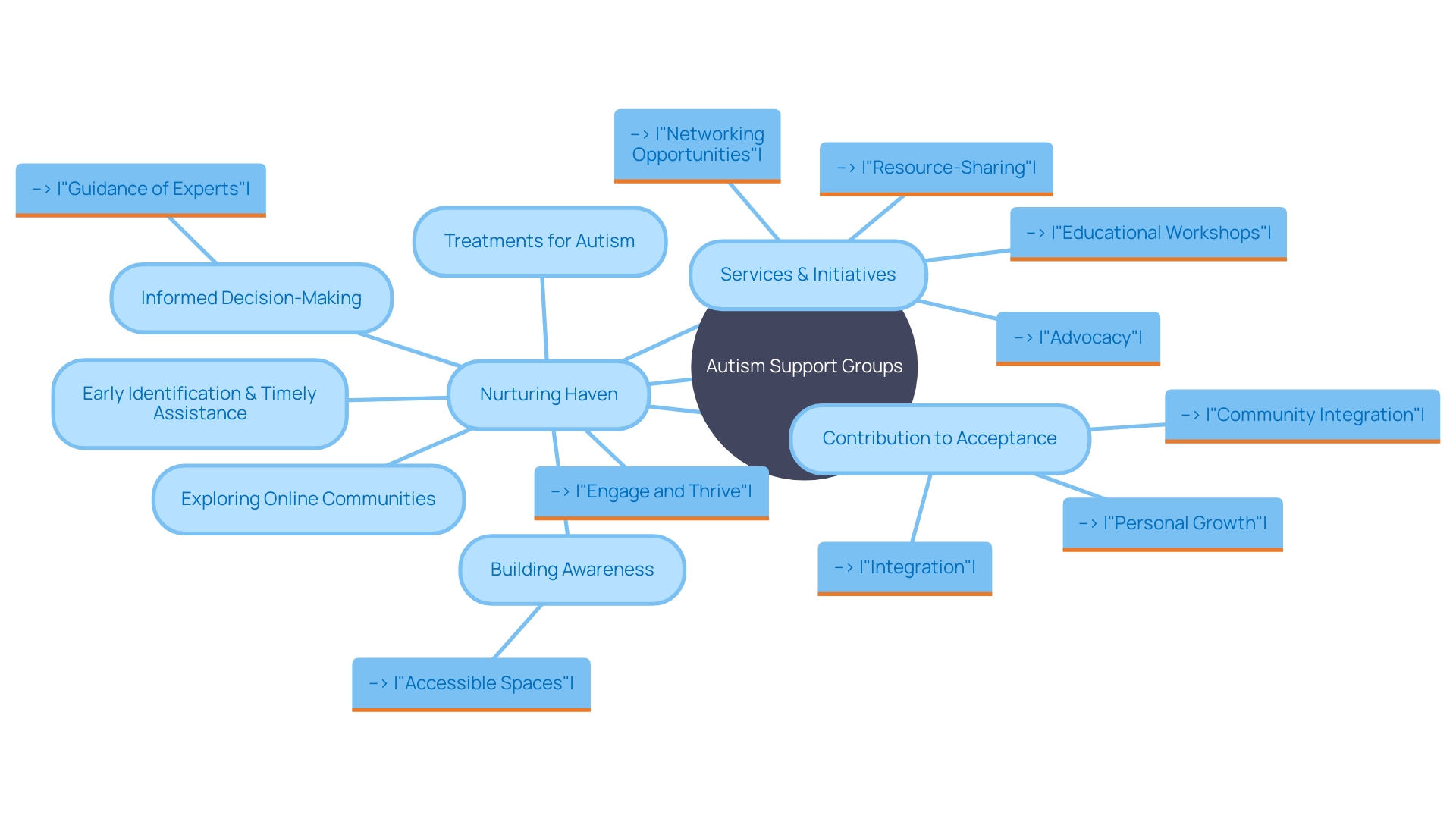
The Benefits of Joining Autism Support Groups
Participation in autism support groups has shown to be highly beneficial for those living with autism spectrum disorder (ASD) as well as their families. These groups create pivotal networks offering not only emotional support in the form of understanding, empathy, and belonging but also practical resources such as coping strategies and educational materials. Individuals within these groups are able to share personal journeys, learn from each other, and build a connected community, providing relief from the common feelings of isolation associated with ASD.
According to gathered insights, engagement in such groups can profoundly impact daily life-management and contribute to holistic well-being for both individuals and families. As shared by Zarinah, the founder of Template House, this collective approach not only aids underserved populations but can lead to communal ownership and stronger societal bonds.
Moreover, the ever-evolving nature of ASD requires continuous learning about new treatments and understanding the complex identity development in autistic adolescents, as highlighted by recent reviews. Autistic youths stand to gain from these support systems, which echo Dr. David R. Offord's philosophy on equal opportunities for children with disabilities. By joining these support groups, families are also taking critical steps toward ensuring a fair and supportive environment for their children to thrive in all areas of life, from school and home to leisure activities.
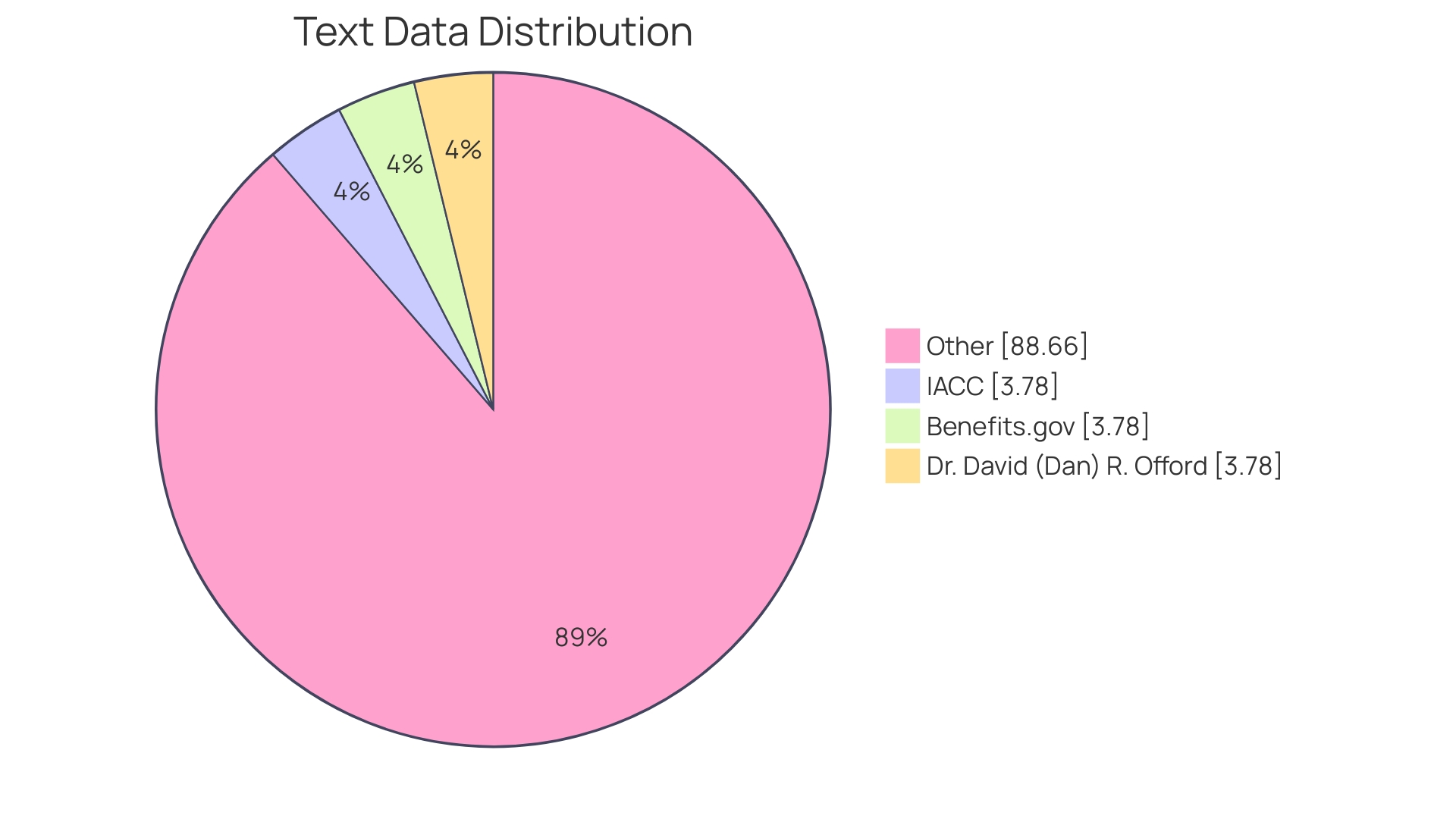
How to Find Autism Support Groups Near You
Discovering local autism support groups can mark a positive turning point for those touched by autism. Here’s how to find one that aligns with your family’s needs:
- Online Research: Initiate a search using terms like 'autism support groups near me' to uncover local websites, online directories, or community forums that offer insight into nearby groups.
- Local Autism Organizations: Connect with regional autism advocacy groups, academic institutions, or therapy centers, which might maintain a roster of local support groups.
- Professional Guidance: Engage with autism specialists, including therapists or educators, who are likely to have established links with support groups and can provide personalized recommendations.
- Community Events: Attending local autism-focused gatherings or informational events introduces you to those involved in support groups, offering a chance to forge connections in person.
Finding the right group may involve patience and persistence. Feel encouraged to explore multiple groups to find the community that resonates with you and your loved ones. Engage actively and give each group a fair chance before deciding.
For example, the innovative 'Autism Activists' is a community that fosters connection and advocacy for autism, recently exploring human rights through an animated film initiative. Their 'Everyday Equality' campaign urges organizations to provide equal access, reflecting just one successful outcome of such support networks.
Moreover, with the increasing demand for autism assessments and support, as illuminated by the 27% rise in new autism referrals and 306% increase in children awaiting assessments, the urgency for accessible support services has never been clearer.
In light of these challenges, the community comes together at events like the Autism Speaks Walk, which is more than just a fundraiser; it represents a hub for connection, amplifying the voices of those with autism.
As parents continually navigate the evolving landscape of treatments and therapies, keeping abreast of new developments is critical. Balancing hope with caution, it is vital to consult with professionals and assess the credibility of sources when considering therapeutic options for your children.
Remember, those who continue to educate themselves on their children's condition can be pillars of strength and knowledge within their families and the broader community. Hence, finding the right support group is a step towards empowerment, securing vital connections and resources to ensure that no one walks this path alone.
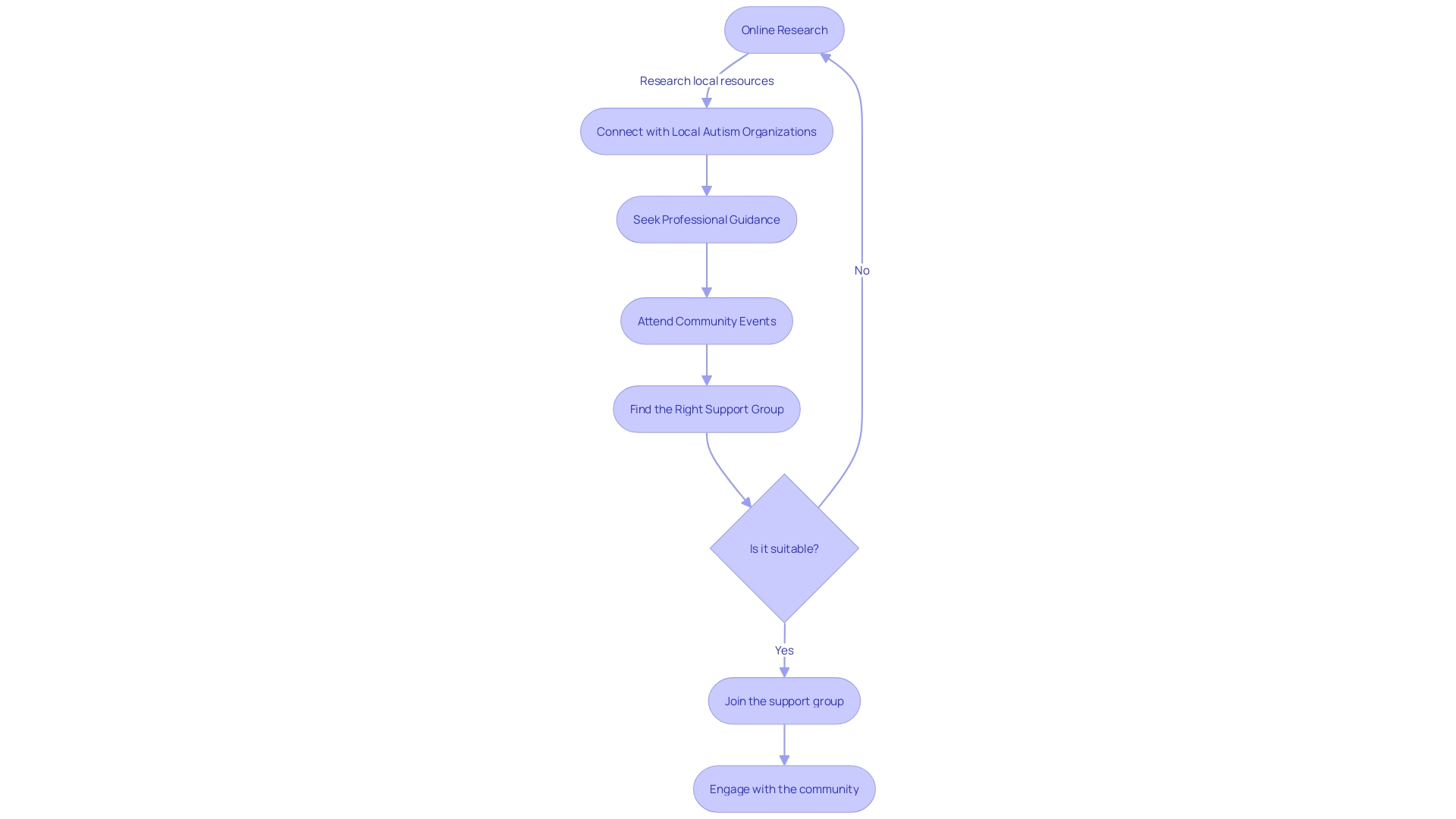
Online Resources for Autism Support Groups
For families and individuals navigating autism, the digital age brings connections right to our fingertips, transcending physical barriers and creating communities that uplift and support. Autism Speaks has crafted a virtual library and forum, alongside a network of real-world groups, fostering exchange and empowerment. Autism Support Network extends a welcoming digital space for members to build profiles, weave connections, and take part in meaningful dialogues.
Meanwhile, Facebook Groups stands as a testimony to solidarity, hosting myriad groups centered around autism support, offering a sanctuary where sharing and seeking advice is the norm. And beyond social media, there are countless online forums and blogs devoted to autism support. These wellsprings of experiences and suggestions provide avenues for navigating the autism journey.
It's paramount, however, to note that while these resources are bountiful and insightful, they're designed as complementary channels of support and never replacements for professional counsel. The studies indicating that the internet can boost happiness and societal engagement affirm the virtual world's capabilities to serve as both a haven and a resource for those with disabilities.
In a world where reality sometimes sets barriers, the digital realm paves paths of freedom and understanding, showcased vividly through the words of an activist who speaks of hardships faced in regions of conflict. These narratives, though harrowing, underscore the importance of accessible support systems for individuals with disabilities—further affirming the value of this interconnected web we've woven online.
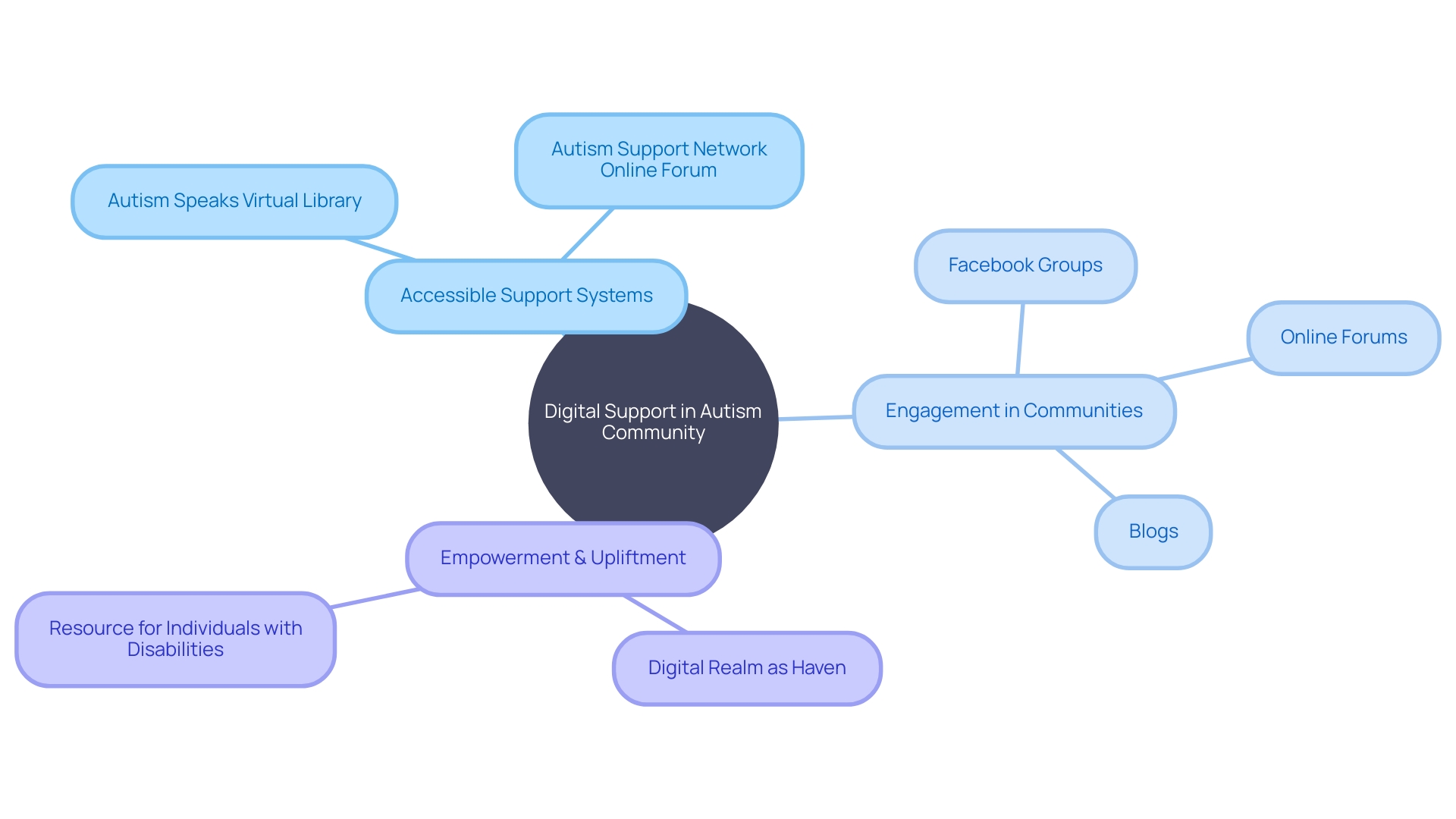
Community-Based Mental Health Services for Autism
Navigating the network of community-based mental health services is essential for empowering individuals with autism and their families with the tailored support they need. Recognized programs like Autism Accreditation have elevated the standards of care, heralding a transformative era for service providers eager to meet such benchmarks of excellence.
These services are a multifaceted ecosystem comprising specialized professionals who align their expertise to the spectrum of needs presented by those with autism. Individual or group counseling by therapists who are attuned to the nuances of autism offers a solid foundation for psychological support. Likewise, behavioral interventionists implement strategic plans addressing behavior, aiming to enrich the life quality of their clients by adapting interventions to their unique scenarios.
Occupational therapists also form a core part of this collective, assisting in honing day-to-day skills and sensitivities to sensory experiences.
Communication barriers that have long challenged individuals with autism are deftly addressed by speech-language pathologists, who provide targeted therapies to improve speech and language proficiency. The commitment to equalizing opportunities for those with disabilities is echoed in the wise words of Dr. David (Dan) R. Offord: "I do not mind if my children are in a race as long as the race is fair." This approach underscores the importance of fair, supportive engagement in all aspects of life—be it education, home, or leisure—and recognizes the invaluable contributions that individuals with autism bring to the table.
The allocation of resources, both in developing supportive environments and alleviating stress-inducing factors, is a testament to community-based services' dedication to fostering well-being. Encouraging developments like the Early Start Denver Model (ESDM) further illustrate this commitment. ESDM, a comprehensive intervention method validated to improve social interaction and communication in young autistic children, is scaling up its impact through initiatives such as grants enabling broader training and application.
Ultimately, these services do not just exist in isolation but connect within a co-located framework, facilitating ease of access while reducing the stigma often associated with seeking mental health support. They stand as beacons of community care, responding proactively to disparities in mental health resulting from systemic inequities, with a clear goal: inclusive and wholesome participation for every individual in their community.
Evidence-Based Practices in Autism Support
In the quest to support children with autism, evidence-based practices stand as pillars of effective intervention. These scientifically proven methodologies are foundational in tailoring support that meets individual needs and promotes optimal outcomes. Among the leading evidence-based practices, Applied Behavior Analysis (ABA) stands out.
Recognized for its success in behavior modification, ABA leverages positive reinforcement to enhance social and educational proficiencies. Another powerful tool is the Picture Exchange Communication System (PECS), which communicates through images to support speech development, offering a visual bridge to language for those facing communication hurdles.
Furthermore, social stories offer a narrative framework for understanding complex social cues and fostering behavioral guidance, while visual supports like schedules and cues demystify daily routines, enhancing the autonomy of individuals with autism. It's pivotal to engage with specialized professionals to navigate these support avenues, ensuring each child's unique journey is championed with the right evidence-based approaches.
Notably, homegrown Canadian thinking, as imparted by Dr. David (Dan) R. Offord, emphasizes 'making the race fair' for children with disabilities, underlining the importance of equitable support in educational and social realms. This perspective advocates for recognizing unmet needs and the inherent value children with disabilities bring to their communities. By reducing stressors and empowering caregivers with necessary resources, we can foster healthier development and family well-being.
The recent shift in autism research to randomized-controlled trials from quasi-experimental studies illuminates the continuous evolution of scientific methods to ascertain the most effective interventions. These advancements in research are crucial as they guide clinicians in choosing the best support strategies based on the latest data. As stated by the Interagency Autism Coordinating Committee (IACC), there's a spectrum of opinions on the ideal approach to autism support, reflecting a dynamic dialogue amongst experts, caregivers, and individuals on the autism spectrum.
These collective insights are vital to forging a path forward that ensures all children can participate meaningfully in their schools and communities, regardless of their unique challenges.
Engaging with Social Media for Autism Support
Leveraging the realm of social media, parents, and caregivers can access a wealth of support when navigating autism with their children. Embracing platforms like Facebook, Twitter, and Instagram, one can readily follow autism advocacy organizations to obtain the latest research findings and updates on pertinent events. Engaging in virtual support groups provides an opportunity for solidarity and to exchange ideas with those sharing similar journeys.
Engaging with professionals during live online events or discussions can also enhance understanding and approaches to autism support, offering rich insights into the latest topics. Moreover, sharing personal narratives on these platforms not only elevates awareness but also creates valuable connections and supports others in the community.
These strategies echo the understanding that equal access to support and resources, as emphasized by the late Dr. David (Dan) R. Offord, is crucial for the healthy development and well-being of children, especially those challenged by autism and other disabilities. The case of Summer Health further underscores the need for accessible and comprehensive support systems that extend beyond the immediate context of medical visits.
Amid these empowering possibilities, it is crucial to ensure the accuracy and reliability of the information encountered on social media and to align with evidence-based practices. Such discernment can pave the way for a digitally-facilitated support landscape that is both productive and reliable, ensuring the race towards well-being is indeed a fair one for all children.
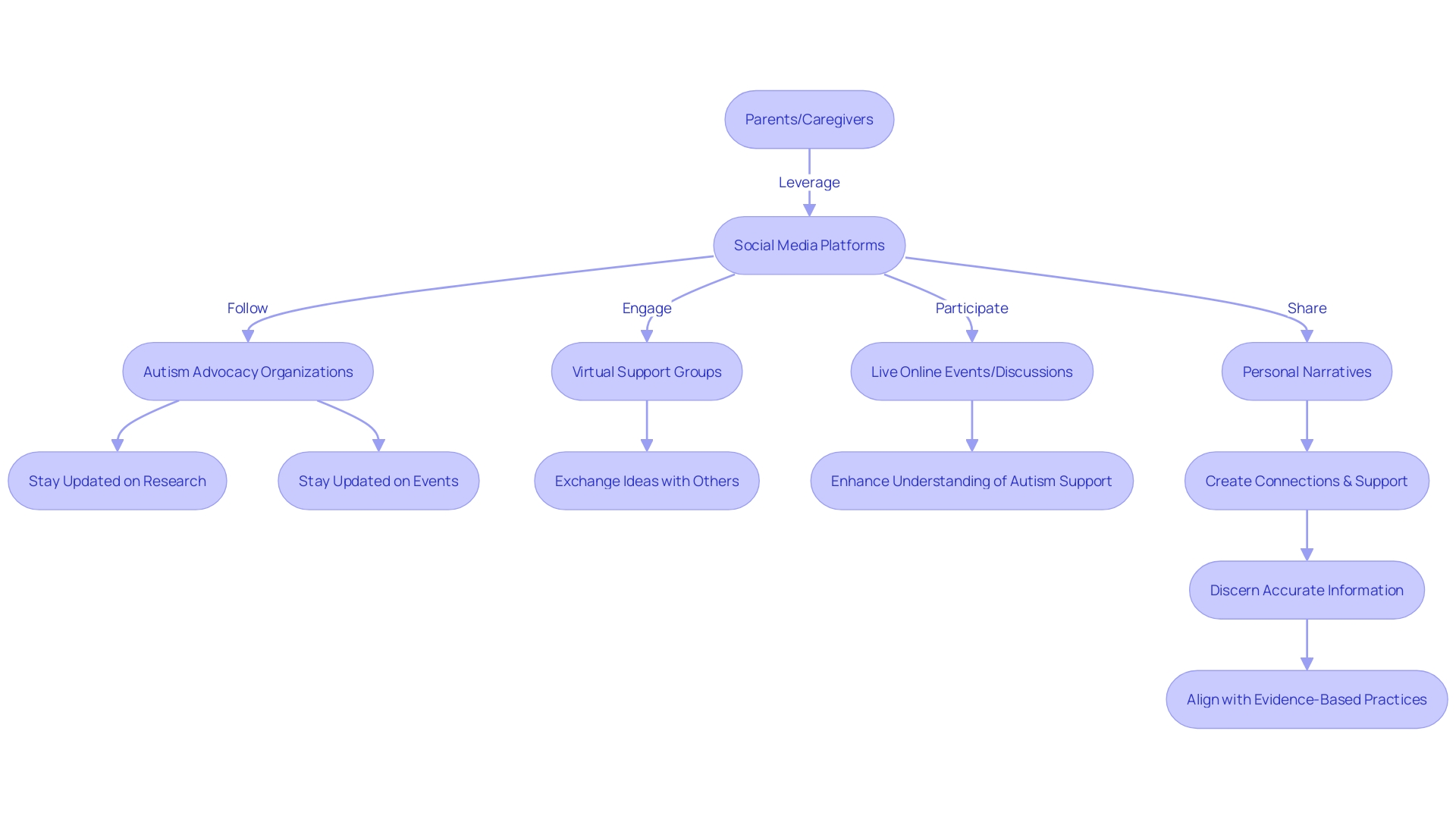
Legal Rights and Accessibility for Autism Support Groups
Understanding the legal landscape that protects the rights of individuals with autism is paramount for ensuring they have equal opportunities to benefit from support services. Fortunately, there are frameworks in place designed to promote inclusivity and prevent discrimination:
- Disability Discrimination Laws: The Americans with Disabilities Act (ADA) and Section 504 of the Rehabilitation Act serve as bulwarks against exclusion, guaranteeing that individuals with autism are entitled to an environment free from discrimination in services, programs, and facilities.
- Reasonable Accommodations: It is incumbent upon autism support groups and organizations to make reasonable accommodations, thus ensuring the full participation of individuals with autism. These adaptations could range from modifying conventional communication methods to enhancing physical accessibility or implementing auxiliary aids and services.
- Individualized Education Programs (IEPs): For children with autism in the special education spectrum, an IEP is a personalized roadmap outlining requisite services, accommodations, and objectives to support their educational journey.
- Accessible Communication: In order to promote understanding and interaction, it’s essential for autism support groups to provide communication methods that cater to the needs of individuals with autism, which may include visual aids, simplified written materials, and alternative communication devices.
In an era where even international scientific collaborations such as virus sequencing and vaccine development are emboldened by principles of inclusion and shared knowledge, it's clear that accessibility is not just an individual concern but a communal triumph. Globally informed efforts, like those championed by the Legal Aid Foundation of Los Angeles which ensures the legal rights of over 100,000 people yearly, and the UN Convention on the Rights of Persons with Disabilities, highlight a universal push towards inclusive services. Meanwhile, incidents soberly recounted in the Disability Debrief remind us of the daily hurdles faced by persons with disabilities, emphasizing the ongoing need to fight for the fundamental human rights enshrined by laws and conventions.
By fully embracing these rights and protections, we can help to cultivate an environment where individuals with autism are not just accommodated, but championed reaching their fullest potential.
Conclusion
In conclusion, community-based autism support groups play a vital role in providing a platform for connection, resource-sharing, and empowerment. These groups offer more than just support, with educational workshops, advocacy, and networking opportunities that are in high demand. The participation in these groups has shown to be highly beneficial for individuals with autism and their families, providing emotional support, coping strategies, and a sense of belonging.
Finding the right support group is crucial, and various strategies can be utilized to discover local autism support groups that align with your family's needs. Online research, connecting with local autism organizations, seeking professional guidance, and attending community events are effective ways to find the right group. Additionally, online resources like Autism Speaks and Autism Support Network can provide virtual support and connections.
Navigating the network of community-based mental health services is essential for empowering individuals with autism. These services, including counseling, behavioral intervention, occupational therapy, and speech-language pathology, cater to the unique needs of those with autism. They serve as beacons of community care, working toward inclusive participation for every individual.
Evidence-based practices such as Applied Behavior Analysis and the Picture Exchange Communication System provide effective intervention methods for children with autism. Engaging with specialized professionals ensures that each child's unique journey is properly supported and championed.
Leveraging social media platforms allows parents and caregivers to access a wealth of support and information. Following autism advocacy organizations, participating in virtual support groups, and engaging in discussions with professionals can provide valuable insights and connections.
Understanding the legal framework that protects the rights of individuals with autism is crucial. Disability discrimination laws, reasonable accommodations, individualized education programs, and accessible communication contribute to promoting inclusivity and preventing discrimination.
By actively engaging with support groups and utilizing online resources, parents and caregivers can navigate the autism journey with empowerment. These support groups are indispensable in the journey to acceptance and integration for individuals with autism and their families. They provide vital connections, resources, and a sense of belonging, ensuring that no one walks this path alone.




